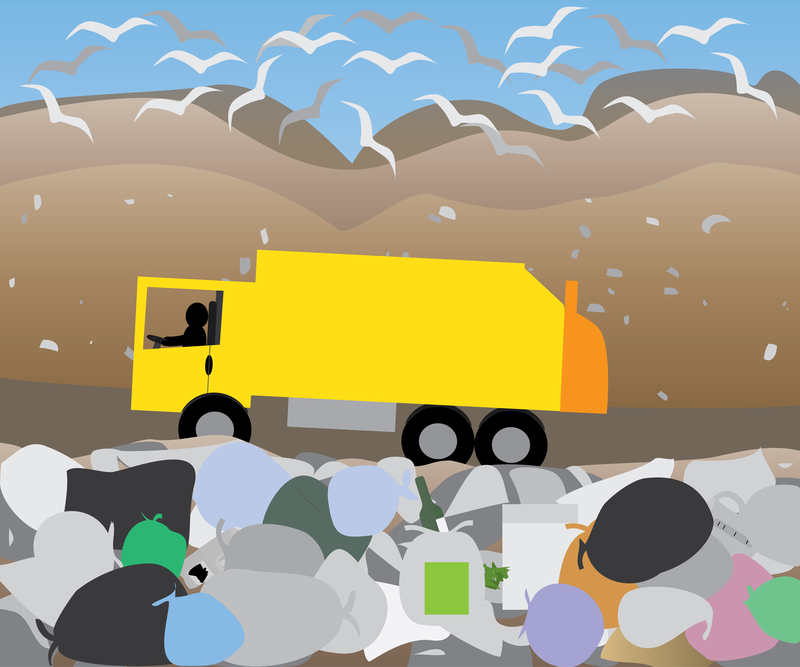As we navigate the global climate crisis, more individuals are seeking ways to live sustainably. Incorporating eco-friendly practices into your daily routine not only benefits the environment but also promotes a healthier lifestyle and can save money in the long run. Whether you're just starting your journey towards sustainable living or you're already a dedicated sustainability enthusiast, these eco-friendly home hacks can enhance your green credentials.
Maximize Energy Efficiency
One of the most direct ways to create an eco-friendly home is by maximizing energy efficiency. By using less energy, you reduce your carbon footprint and utility costs.
Switch to LED Lighting
- LED bulbs consume up to 80% less energy compared to traditional incandescent bulbs.
- The longer lifespan of LEDs means reduced waste over time.
- LEDs are available in a variety of colors and intensities to fit any ambiance preference.
Smart Metering and Thermostats
Invest in smart meters and thermostats to monitor and control your home's energy consumption:
- Use smart thermostats to manage heating and cooling, optimizing use when you're home and reducing it when you're away.
- Real-time data from smart meters allow you to identify and cut unnecessary energy expenses.
Consider Solar Panels
While a substantial initial investment, solar panels can drastically decrease your energy consumption:
- Generate your own clean energy, reducing dependence on fossil fuels.
- Take advantage of government incentives and rebates for solar panel installation.
- Over time, solar panels can significantly lower or even eliminate your electricity bills.

Water Conservation Techniques
Water is a precious resource, and conserving it is crucial for a sustainable home.
Install Low-Flow Fixtures
- Low-flow showerheads and faucets significantly reduce water wastage without compromising on performance.
- Consider dual-flush toilets, which offer a choice between two flush volumes, saving water with each use.
Rainwater Harvesting
Harvesting rainwater is an effective way to reduce water consumption:
- Set up a rainwater collection system to capture and store rainwater for gardening or cleaning.
- Ensure your system is equipped with filters to remove debris and contaminants.
Mindful Landscaping
Your garden can be a major water consumer. Adapt sustainable landscaping practices:
- Select native plants that require less watering and are more resistant to local pests and diseases.
- Use mulch to retain soil moisture and reduce the need for frequent watering.
Reduce, Reuse, Recycle
Minimizing waste is a cornerstone of sustainable living. By embracing the three Rs - Reduce, Reuse, Recycle - you can lessen your environmental impact.
Composting
- Create a composting system to turn kitchen scraps and yard waste into nutrient-rich soil.
- This reduces landfill waste and provides natural fertilizer for your garden.
Mindful Purchasing
Be intentional with your purchases:
- Avoid single-use plastics whenever possible; bring reusable bags, bottles, and containers.
- Choose products with minimal packaging or from companies with strong sustainability practices.
Recycling Programs
Ensure you're up to date with local recycling programs:
- Separate recyclables from waste and adhere to recycling guidelines.
- Participate in electronic recycling programs for old gadgets and batteries.
Indoor Air Quality and Natural Cleaning
Indoor air can be more polluted than outdoors. Improve your home's air quality with these tips:
Houseplants for Air Purification
- Certain houseplants, such as spider plants and snake plants, are known to purify air by removing toxins.
- Create a green space that enhances your home's aesthetic and boosts mental well-being.
Use Natural Cleaning Products
Switch to eco-friendly cleaning products:
- Natural ingredients like vinegar, lemon juice, and baking soda can replace harsh chemicals.
- These alternatives are safer for your health and the environment, especially in homes with children and pets.

Sustainable Kitchen Practices
The kitchen is a major hub of activity and resource consumption. Small changes can lead to significant impacts:
Reduce Food Waste
- Plan meals and buy only what you need to minimize food wastage.
- Store food properly to extend its shelf life.
Eco-Friendly Cooking
- Use energy-efficient appliances like pressure cookers and induction stoves.
- Batch cooking saves energy and time.
Conclusion: Take Action Today
Transforming your home into a beacon of sustainability doesn't happen overnight, but each small change contributes to a larger impact. By integrating these eco-friendly home hacks, you not only foster a healthier environment but also inspire others in your community to follow suit. Remember, sustainable living is not about perfection but about making conscious choices that lead to a better planet.
Start with a few changes, see the benefits, and gradually incorporate more. In no time, your sustainability journey will become second nature, and you'll be living in a home that reflects your commitment to a greener world.